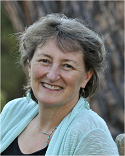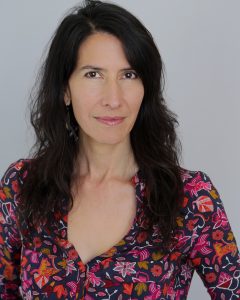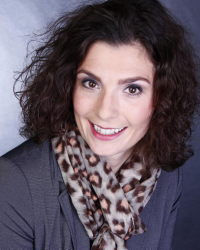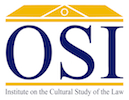Apr
14
2017

OSI
 The first convener of Workshop 2, “Claiming the Past, Belonging for the Future,” that we would like to introduce is Marianne Constable. She is Professor of Rhetoric at UC Berkeley and has published broadly on a range of topics in legal rhetoric and philosophy. Her most recent book, entitled Our Word is Our Bond: How Legal Speech Acts, (Stanford University Press, 2014) shows how legal utterances, in speech and writing, are forms of law-in-action. She is currently working on the “new unwritten law” that ostensibly exonerated women who killed their husbands in Chicago a century ago, as a way of exploring the rhetoric of law and the rhetoric of history. Her earlier books include Just Silences: The Limits and Possibilities of Modern Law (2005) and The Law of the Other: The Mixed Jury and Changes in Conceptions of Citizenship, Law and Knowledge (1994), which won the Law and Society Association’s J. Willard Hurst Prize in Legal History.
The first convener of Workshop 2, “Claiming the Past, Belonging for the Future,” that we would like to introduce is Marianne Constable. She is Professor of Rhetoric at UC Berkeley and has published broadly on a range of topics in legal rhetoric and philosophy. Her most recent book, entitled Our Word is Our Bond: How Legal Speech Acts, (Stanford University Press, 2014) shows how legal utterances, in speech and writing, are forms of law-in-action. She is currently working on the “new unwritten law” that ostensibly exonerated women who killed their husbands in Chicago a century ago, as a way of exploring the rhetoric of law and the rhetoric of history. Her earlier books include Just Silences: The Limits and Possibilities of Modern Law (2005) and The Law of the Other: The Mixed Jury and Changes in Conceptions of Citizenship, Law and Knowledge (1994), which won the Law and Society Association’s J. Willard Hurst Prize in Legal History.
Continue Reading »
Apr
12
2017

OSI
 As we just posted information on our first convener, Sabine N. Meyer, today we want to introduce her co-convener in Workshop 3 “Real and Performative Properties: Competing Claims to Citizenship, Indigeneity, and Land,” Beth Piatote. She is associate professor of Native American Studies, and affiliated faculty in the Department of Linguistics and the American Studies program at the University of California, Berkeley. Her research interests include Native American/Aboriginal literature and federal Indian law in the United States and Canada, American literature, and Nez Perce language and literature.
As we just posted information on our first convener, Sabine N. Meyer, today we want to introduce her co-convener in Workshop 3 “Real and Performative Properties: Competing Claims to Citizenship, Indigeneity, and Land,” Beth Piatote. She is associate professor of Native American Studies, and affiliated faculty in the Department of Linguistics and the American Studies program at the University of California, Berkeley. Her research interests include Native American/Aboriginal literature and federal Indian law in the United States and Canada, American literature, and Nez Perce language and literature.
Continue Reading »
Apr
11
2017

OSI
 As the first convener in this series, we would like to introduce Osnabrück’s own Sabine N. Meyer. Together with Beth Piatote she will convene Workshop 3 “Real and Performative Properties: Competing Claims to Citizenship, Indigeneity, and Land.” Currently, she is Assistant Professor of American Studies at the Institute of English and American Studies at Osnabrück University, Germany. Between April 2015 and March 2016, she was also a fellow at the Käte Hamburger Center for Advanced Study in the Humanities “Law as Culture” at Bonn.
As the first convener in this series, we would like to introduce Osnabrück’s own Sabine N. Meyer. Together with Beth Piatote she will convene Workshop 3 “Real and Performative Properties: Competing Claims to Citizenship, Indigeneity, and Land.” Currently, she is Assistant Professor of American Studies at the Institute of English and American Studies at Osnabrück University, Germany. Between April 2015 and March 2016, she was also a fellow at the Käte Hamburger Center for Advanced Study in the Humanities “Law as Culture” at Bonn.
Continue Reading »
 The first convener of Workshop 2, “Claiming the Past, Belonging for the Future,” that we would like to introduce is Marianne Constable. She is Professor of Rhetoric at UC Berkeley and has published broadly on a range of topics in legal rhetoric and philosophy. Her most recent book, entitled Our Word is Our Bond: How Legal Speech Acts, (Stanford University Press, 2014) shows how legal utterances, in speech and writing, are forms of law-in-action. She is currently working on the “new unwritten law” that ostensibly exonerated women who killed their husbands in Chicago a century ago, as a way of exploring the rhetoric of law and the rhetoric of history. Her earlier books include Just Silences: The Limits and Possibilities of Modern Law (2005) and The Law of the Other: The Mixed Jury and Changes in Conceptions of Citizenship, Law and Knowledge (1994), which won the Law and Society Association’s J. Willard Hurst Prize in Legal History.
The first convener of Workshop 2, “Claiming the Past, Belonging for the Future,” that we would like to introduce is Marianne Constable. She is Professor of Rhetoric at UC Berkeley and has published broadly on a range of topics in legal rhetoric and philosophy. Her most recent book, entitled Our Word is Our Bond: How Legal Speech Acts, (Stanford University Press, 2014) shows how legal utterances, in speech and writing, are forms of law-in-action. She is currently working on the “new unwritten law” that ostensibly exonerated women who killed their husbands in Chicago a century ago, as a way of exploring the rhetoric of law and the rhetoric of history. Her earlier books include Just Silences: The Limits and Possibilities of Modern Law (2005) and The Law of the Other: The Mixed Jury and Changes in Conceptions of Citizenship, Law and Knowledge (1994), which won the Law and Society Association’s J. Willard Hurst Prize in Legal History.


 As we just posted information on our first convener, Sabine N. Meyer, today we want to introduce her co-convener in
As we just posted information on our first convener, Sabine N. Meyer, today we want to introduce her co-convener in  As the first convener in this series, we would like to introduce Osnabrück’s own Sabine N. Meyer. Together with Beth Piatote she will convene
As the first convener in this series, we would like to introduce Osnabrück’s own Sabine N. Meyer. Together with Beth Piatote she will convene